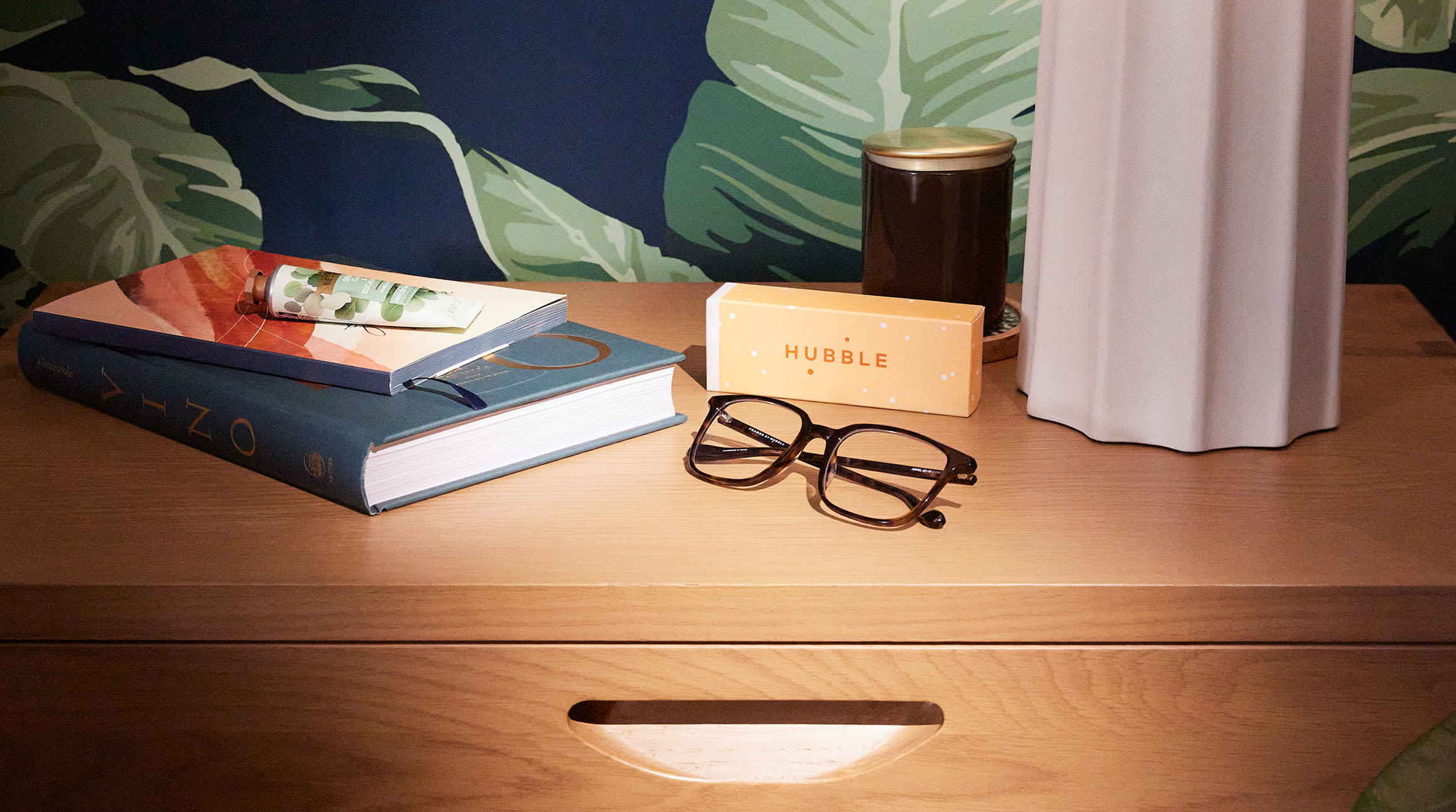Switching to Contacts vs Wearing Glasses: The Pros and Cons of Both

Switching to prescription contact lenses may be a great way for you to get the vision correction you need without having to wear glasses. Wearing contacts can provide a more natural look, and they are often more convenient than glasses. However, it is important to make sure that you always follow the instructions for proper contact lens care. It may be beneficial to speak to an eye care professional about the pros and cons of prescription contact lenses before making a decision.
Wearing Glasses
If you wear prescription glasses, there are a few tips to keep in mind to ensure that your eyeglasses are comfortable and stylish. First, make sure the frames of your glasses fit properly. If the frames are too tight they can cause discomfort, and if they’re too loose they can slip off your face. Second, consider the type of lenses you need. If you need stronger lenses, opt for a thicker frame to help support them. Third, take into account your lifestyle when choosing a frame. If you’re active, look for frames that are lightweight and have rubber tips to help keep them in place. Lastly, don’t forget to use a lens cleaner and soft cloth to keep your lenses smudge-free and sparkling!
Types of Glasses
There are many different types of eyeglasses available for different purposes. Prescription eyeglasses can be found in various shapes, sizes, and materials, from traditional metal frames to modern plastic frames. Sport eyeglasses are designed to be lightweight and comfortable, with a secure fit to keep them in place during activities. Reading glasses are designed to help with close-up tasks such as reading, or working on your phone or tablet.
Single Vision - For single vision glasses or sunglasses with prescription. These lenses offer correction of vision for a single distance, for example, nearsightedness or farsightedness.
Progressive - These are multifocal corrective lenses that change to adjust to different perspectives. These don’t have a bifocal line.
Anti-Reflective Coating - The lenses of the glasses are coated with an anti-glare agent that acts to reduce glare and makes objects easier to see in a light environment.
Transition - The lenses on these glasses automatically adjust to dark in sunlight and lighten when indoors.
Bifocals - The lens features two corrections – one on the top for distance and one on the bottom for reading.
Sunglasses - Regular tinted glasses that are non-prescriptive and are meant to protect the eyes from sunlight or glare.
Pros of Glasses
Wearing glasses can be very beneficial for people who need them for vision correction. They can help improve the clarity of vision and reduce eye strain, giving you better concentration and focus. Wearing glasses can also give you a more stylish look and can be a great accessory. Additionally, some glasses can offer protection from the sun's ultraviolet rays, reducing the risk of cataracts and other eye diseases.
Cons of Glasses
Wearing glasses can be inconvenient at times, as they can be uncomfortable to wear, or can cause a feeling of pressure around the face. They can also be expensive to replace if they break or get lost, and can be a nuisance if you're trying to do activities such as playing sports or swimming. They may also be difficult to keep clean, as they can easily collect dust and smudges, and require regular cleaning. Finally, wearing glasses can be a hassle if you need to switch between different pairs of glasses for different activities.
Wearing Contact Lenses
Wearing contact lenses is a great way to improve your vision without the need for eyeglasses. However, there are some important things to consider before you make the switch to contacts. First, you should consult with your eye care professional to make sure contacts are the right vision correction option for you. They will be able to provide advice on the different types of lenses available and the best fit for your eyes. It is also important to be aware of the proper maintenance and cleaning routine for your contacts, as well as the potential risks associated with wearing them. If you follow all the necessary precautions, you can enjoy the convenience and comfort of contact lenses for many years to come.
Types of Contacts
Soft Contact Lens - These hydrating contact lenses are made from a softer, more pliable (flexible) material. They are made with a hydrogel and are often the most prescribed contact due to their ease of use and comfort.
Hard Lens/Rigid Gas Permeable Contact Lenses - These contact lenses are a firmer or hard type of material that is more durable and does not bend or fold. These contacts are also called Rigid Gas Permeable (RGP) lenses. Hard lenses usually provide a clearer sight. These lenses require more cleaning and disinfection.
Daily Wear (Dailies) - Daily wear contacts (dailies) are the most commonly prescribed option. These lenses are worn throughout the day and then removed each night and placed in a contact lens case with fresh solution. This helps disinfect the lenses and prepare them to be used again the following day.
Extended Wear - Extended wear contact lenses can be worn overnight. These lenses are typically designed to be worn from one to six nights, but some can be worn for up to 30 days. These lenses work best for those with lifestyles that may prevent them from removing lenses at night, such as military personnel or emergency service workers.
Two-Week Or Monthly - Monthly wear contact lenses are planned replacement lenses typically that come in a wider variety of options compared to daily use lenses, and they are often more affordable. Because they aren’t discarded as frequently, biweekly lenses are also more environmentally friendly.
Contacts vs Glasses: Pros of Contacts
Wearing contact lenses can be a great way of improving your vision without having to wear glasses. They can provide a more natural look and feel, and can be a comfortable and convenient option since they don't require frames or straps. Contact lenses also provide a better field of vision as the lens sits directly on the eyes. Those who play sports or lead an active lifestyle can benefit greatly from the freedom that wearing contact lenses can bring.
Contacts vs Glasses:Cons of Contacts
Contact lenses can be a great alternative to glasses and can provide clear vision with minimal obstruction. However, there are some things to consider before making a decision to wear contact lenses. One possibility is the risk of an eye infection. When contact lenses are not properly cared for and cleaned, bacteria can build up and cause an infection. Learning how to insert contact lenses and touching your eye to do so is a challenge. Contact lenses can be expensive and require frequent replacements.
Contacts vs Glasses FAQ: Are Contacts Better than Glasses?
Do contacts provide better vision?
Contacts can provide better vision than glasses in some cases. Depending on the individual's prescription and needs, contacts may be a better option for providing better vision than glasses. However, it's important to consult with an optometrist to determine what type of eyewear is best for you.
Can you wear contacts if you need bifocals?
Yes, you can wear contacts if you need bifocals. There are several different types of bifocal contact lenses that can be prescribed depending on your individual vision needs. This includes both soft and rigid gas permeable (RGP) lenses. Talk to your eye care provider to learn more about what type of contact lenses may be best for you.
Are contacts cheaper or more expensive than glasses?
Contacts are typically more expensive than glasses. Contacts require a fitting from your eye care provider as well as regular replacement lenses. In addition, there can also be additional costs for solutions and other supplies that are required to care for contacts. However, in some cases, contacts may be more cost-effective than glasses, depending on your prescription and the type of lenses. It is best to speak to your eye care provider to find out which option is the most cost effective for your particular needs.
For computer use, are contacts better than glasses?
When it comes to computer use and staring at a screen, it really depends on the individual and their eye needs. For some, contacts may be more comfortable and convenient for long periods of screen time, while others may find glasses more comfortable. However, glasses are a slightly better choice, given that some glasses have blue light technology that makes staring at a screen more comfortable. Ultimately, it’s best to consult with an optician to determine which option is best for you.
The Bottom Line: Are Contacts Better Than Glasses?
Ultimately, there’s no one right eyewear solution that’s “better” or healthier, it comes down to what you prefer and feel most comfortable using. You can wear both or switch regularly if you so choose. It is a simple solution to have a reliable pair of eyeglasses at all times, in case you need a break or relief from daily contact lenses wear.
Taking Care of Your Vision with Hubble
Taking good care of your eyes is important for long-term eye health and vision. Hubble can serve as your complete vision solution if you’re looking for prescription eyeglasses, contact lenses online, or both. Once you decide on glasses, you'll enter your prescription (if you're ordering prescription glasses) and select your preferred lens type. To get the most out of your contact lenses—and save some time on contact lens care—get daily contacts from Hubble. Start your daily contact lenses subscription today for only $1 and find out why contact lens wearers love Hubble. Hubble lenses are made from methafilcon A, a hydrogel material. With 55% water content, UV protection, and a thin edge, they're designed for easy insertion, all-day comfort, and crystal-clear vision.
See what people are saying about Hubble, and get your own box of Hubble contacts online today.



